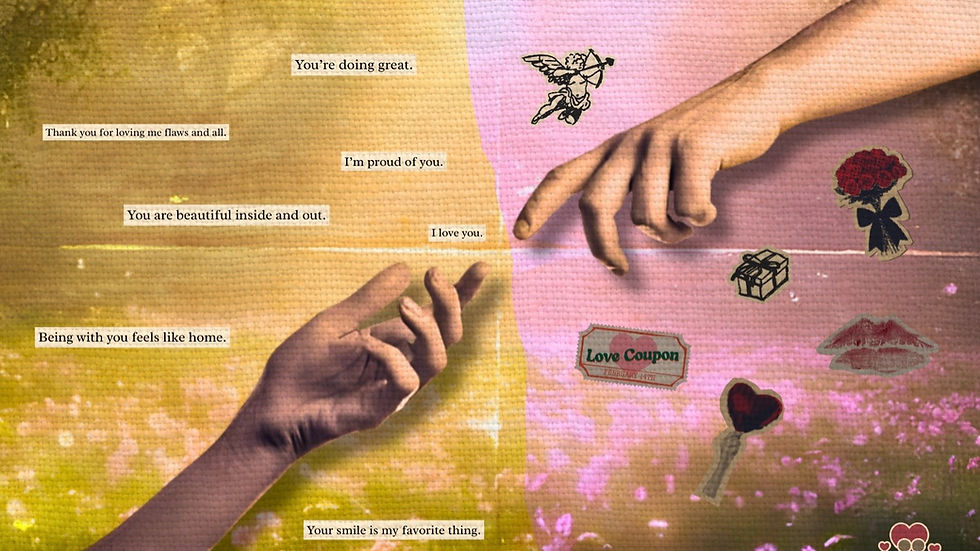Forgetting Comfort: Carrying Forward the Plight of Comfort Women from the Fabric of Wartime History
- The Communicator
- Mar 25, 2024
- 4 min read
The suffering endured by comfort women in World War II stands as proof of the profound integration of sexual violence into the fabric of wartime history.

Japan arrived and invaded the Philippines in the early 1940s. Under their occupation, military officials coerced women into sexual slavery, cruelly labeling them as ”comfort women.” These women were forced to toil in ”comfort stations,” which officials would visit after their duties. These stations served as brothels established for the use of Imperial Japanese military personnel and civilian employees within the battlefield and occupied territories.
Seventy-nine years have already passed since the war ended, but the nightmares of the victims of sexual slavery still haunt them today. The forced “comfort women” did not get reparations or any compensation from the invaders. Even the sincerity of the Japanese government’s apology received doubts and questions.
With the evolving landscape of geopolitics fostering stronger defense ties between the Philippines and its former colonizer, the surviving victims and their advocates now see a moment to amplify their longstanding demands.
Lila Pilipina stands as an organization representing Filipino ”comfort women” who endured the horrors of Japanese wartime military sexual slavery. Their mission is to tirelessly advocate for justice and freedom for all victims of violence in wars of occupation or aggression during World War II.
Likewise, the Gabriela Women’s Party is one with them as they represent the cause in the Philippine Congress.
In 2023, Gabriela filed House Bill 8859, which seeks to ensure that the harrowing plight of ”comfort women” finds its rightful place in history books and school textbooks. Therewith, they proposed designating August 14th as a national day dedicated to honoring the memories of comfort women annually.
Unveiling the Untold Stories of 'Comfort Women' That Must Be Passed Down Through Generations
There were around 200 documentaries about different comfort women survivors collected by Lila Pilipina. However, on this date, only eight of them are left. Three of them tell the story of these three women.
Maria Rosa Luna Henson
Rosa, a survivor of wartime sexual slavery by Japanese forces, bravely stepped into the public eye in 1992 to share her story. Little did she know the impact her courage would have positively affected the other survivors to become one with the plight.
“I thought he would save me, but he grabbed me from the soldiers and raped me… When he was done, he passed me on to the two soldiers, who took turns raping me. Then they just walked away. It was a very painful experience… I was very sad. I could feel the pain inside me. I was 14 and had not yet begun to menstruate. I kept thinking, why did this happen to me?”
Narcisa Claveria, 94
When Narcisa Claveria, known as ”Isang” to her friends, first heard Rosa Henson's voice on the radio, she was deeply moved by her courage. Her testimony dug up a dark memory, which also pushed her to step forward.
“I was in a different room every night. If I refused, they would whip me. They would flay us with horse whips… If I could prevent the sun from setting, I would have, because whenever night fell, life for us became miserable.”
Estelita Dy, 94
Estelita Dy also endured a brutal rape. When she bravely fought back, she was threatened by a soldier. Despite her dark past, she chooses to live in silence. Estelita refused to support Rosa’s plight when she first heard it on the radio, but later on, realized that Rosa’s brave soul is enough to also stand her ground.
“I said, ‘She should have kept quiet’.”. A year later, her perspective started to shift. “In 1993, I was still thinking about it,” Estelita said.
“Maybe Rosa was right.”
Women's Month is a Beacon of Hope for Preserving the Courageous Fight of Comfort Women in History's Narrative
The “comfort” provided to military men during wartime came at the grave expense of the safety and freedom of its victims.
Comfort women have fought for a long time just for their stories to be recognized and remembered. However, until today, it is still a battle they need to face.
In fact, a bronze statue of a blindfolded woman representing and honoring Filipinas who were tragically forced into sexual slavery by the Japanese army in Manila vanished in 2018. Apparently, it was removed by the Department of Public Works and Highways (DPWH) in the middle of one night in April.
In defense of this, former president Rodrigo Duterte stated, “Freedom of expression… it is not the policy of the government to antagonize other nations… it has somehow created a bad, you know... you can place it somewhere else.”
This sparked outrage as it shows nothing but cowardice and forgetfulness—all for the sake of economic support.
As we commemorate this year’s women’s month, let us all—especially the younger generation—be reminded of the struggle of the women who fought this violence, to ensure their presence and rightful place in Philippine history. Let these be written in textbooks and passed down through generations, as it is our responsibility to protect and preserve these narratives for justice to be served.
May this commemoration be also a reminder of the deep-rooted presence of sexual slavery and assault in our history, emphasizing the urgency of addressing this pervasive issue. Safeguarding the story of comfort women is not only crucial but vital to prevent its tragic recurrence. By doing so, we empower present and future generations to fearlessly stand for what is just, right, and true—ensuring that the comfort women’s unwanted resilience and indomitable spirit will not vanish in no time.
Article: Shaeka Madel Pardines
Graphics: Cathlyn de Raya




Comments